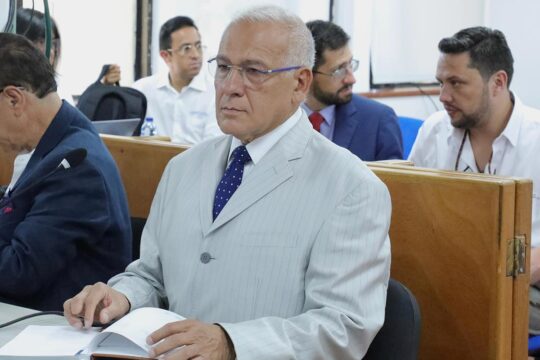Colombians voted in a referendum Sunday on whether to ratify a historic peace accord to end a 52-year war between the state and the communist FARC rebels.
The accord will effectively end what is seen as the last major armed conflict in the Western Hemisphere. The war has killed hundreds of thousands of people and displaced millions.
The government of Colombian President Juan Manuel Santos says it has no Plan B if voters reject the accord -- but polls indicate it will pass by a wide margin.
"Colombia is betting everything on this plebiscite, socially, economically and politically," said Jorge Restrepo, director of conflict analysis center CERAC.
Colombians are sick of war, even though many resent making concessions to the Revolutionary Armed Forces of Colombia (FARC), which has carried out killings, kidnappings and extortion.
Now citizens will vote on the question: "Do you support the final accord to end the conflict and to build a stable and lasting peace?"
Polls opened at 1300 GMT across the country and were due to close at 2100 GMT, with a result expected soon after.
Around 35 million of Colombia's 48 million people were eligible to vote.
- Resistance -
Opinion surveys by pollsters Datexco and Ipsos Napoleon Franco, published on October 26, indicated the 'Yes" vote would win by a margin of around 20 percent.
Both polls indicated a 'No' vote of about 35 percent.
"October 2 is the only opportunity to correct these accords that Santos has rewarded the FARC with," wrote the leader of the 'No' campaign, former president Alvaro Uribe on Twitter.
"For my country, vote 'No.'"
Santos insisted that "for the peace to be stable and lasting, it needs the seal of legitimacy and approval of the Colombian people."
The government's chief negotiator in the peace talks, Humberto de la Calle, told AFP: "Voting 'No' and thinking that we can correct whatever we want (in the accord) is an illusion."
- Disarmament, politics -
The deal signed on October 26 by Santos and FARC leader Rodrigo Londono, known as "Timochenko," calls for the rebels to disarm and convert into a political group.
It will have at least 10 seats guaranteed for it in Colombia's Congress.
The accord's main points include justice and compensation. There is an amnesty for some FARC members but not for those accused of the worst crimes such as massacres, torture and rape.
In the face of skepticism in the 'No' camp, the FARC promised in a statement on Saturday that it would provide "material compensation for victims" out of the force's collective assets.
The peace plan aims to replace the fields of coca in FARC territory with other crops. The South American nation of 48 million people is ranked by the UN as the world's biggest cocaine producer -- a trade that has fueled the conflict.
If voters approve the accord, FARC fighters must demobilize and disarm over the coming six months, monitored by the United Nations.
The force said on Friday it had 5,765 members.
The accord is seen as virtually ending the conflict, even though the government has so far failed in efforts to start peace talks with a smaller leftist rebel group, the National Liberation Army (ELN).
- Reconciliation -
The FARC launched its guerrilla war on the Colombian government in 1964, after a peasant uprising that was crushed by the army.
Over the decades, the ideological and territorial conflict drew in several leftist rebel groups, right-wing paramilitaries and drug gangs.
Colombian authorities estimate the conflict has left 260,000 people dead, 45,000 missing and nearly seven million displaced.
The FARC have apologized to their victims and held emotional face-to-face reconciliations over recent days.
One such encounter took place on Friday in La Chinita, northwestern Colombia, where a FARC massacre at a fundraising party in 1994 left 35 dead.
"Today this district has an opportunity to mend its social fabric," said Ciro Abadia, president of the victims' association Asovima.
"We have to show the world that although we were massacred, we are here today in a state peace."


